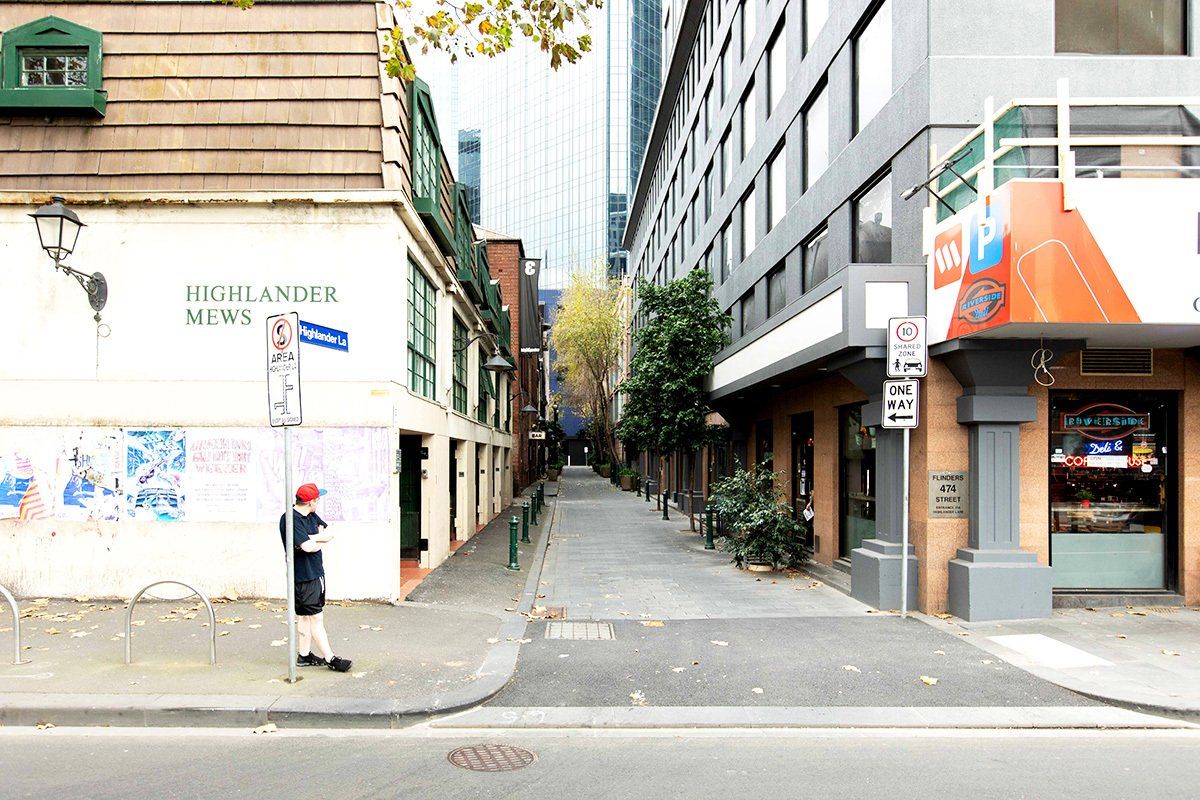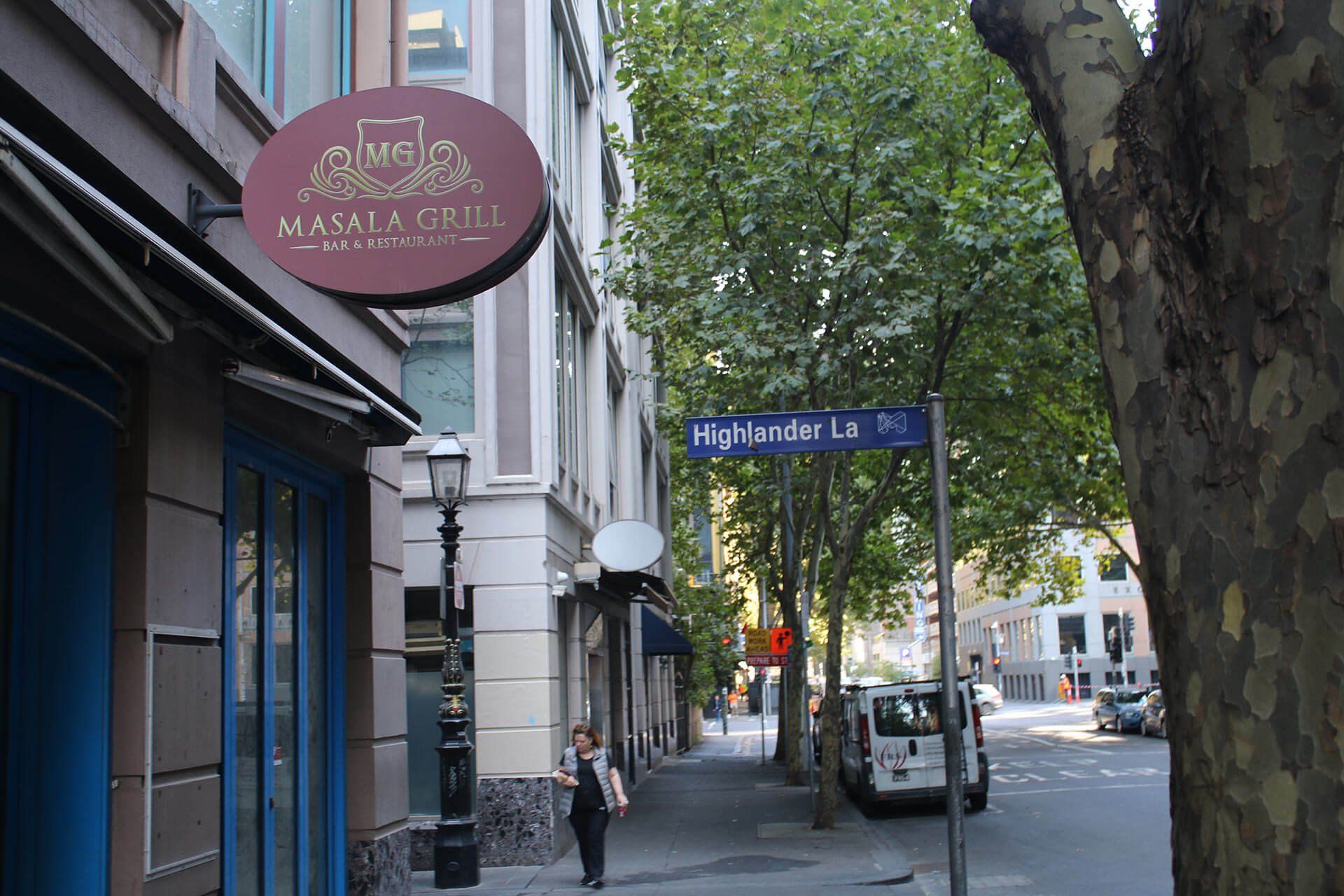General Information - Students
Location
Level 12/474 Flinders St, Melbourne 3000 (entrance is in Highlander Lane)
Opposite Sea Life (The Melbourne Aquarium)
Transport
During your program you will become very familiar with walking the streets and the using the public transport system. There are some strategies and information that will be helpful to support you to travel as efficiently and safely as possible.
You will need a MYKI card with either MYKI Money or a MYKI Pass (7+ consecutive days - is recommended for longer programs) to get from home to the city. Whilst in the city, walk or take a tram to your destination. Walking is often quicker than trams, but trams are convenient and frequent within the grid. Trains are only useful for moving between the CBD and the suburbs.
Public Transport Tips
- Trams may be confusing for you at the beginning. They have set routes and stops. They travel in the same direction as cars. Most of the CBD is in the ‘Free Tram Zone’ so you do not need to pay for your fare by touching your Myki on or off. If you leave the ‘Free Tram Zone’ you will need to touch-on your Myki. If you are travelling outside the “Free Tram Zone” you must touch on but unless you are travelling to Zone 2 you do not need to touch off
- Trains are likely to be the method of transport you use to get to City Cite. The closest train stations are Southern Cross and Flinders Street Stations. You need to pay for your fare by touching your Myki card at the entrance and exit to the station. Failing to pay for your fare is an offence and could result in a fine ($248 for an adult and $83 dollars for a child under 18)
There are set rules and conventions for travelling on public transport in Victoria that make it safer and more comfortable for people to commute to and from the city. In a sense the rules are about good manners and being considerate. These rules include, but are not limited to:
- No loud or offensive language
- No feet on seats
- Travel with a valid ticket (your Myki and concession / student card)
- If you are sitting in Priority Seat you must offer it to people who need to sit down
- No littering
- No graffiti
- No forcing doors open
Other guidelines are:
- To allow people to exit the tram / train before boarding
- Hold on to a handle or rail at all times
- Offer your seat to adults
- Speak quietly
- Be mindful of your belongings to ensure they are not in the way of others or vulnerable to theft
Walking in the City
Walking is the most popular form of travel in the CBD. It is likely you will walk a lot during the program. Some tips for walking safely in the city:
- Travel between venues in groups of 3-6. Never travel alone – this is a City Cite rule. This is both for your safety and to ensure that you do not crowd the footpath by being in a large group.
- Walk no more than two abreast, keeping to the left, to ensure you leave space for other walkers
- Be aware and considerate of other people and walk through the crowded areas with patience.
Crossing the Road
- Always cross streets at designated pedestrian crossings and obey the lights.
- Jaywalking is the act of walking in the street or road unlawfully and without regard for approaching traffic. In Victoria there are penalties for pedestrians who do not obey these laws. Ultimately the laws have been designed to create order and to keep us all safe.
- Do not wear headphones or use a mobile device while walking in the city. You need to be completely aware of everything that is happening around you and be ready to react or respond.
Food & Drink
Purchasing food and drink everyday can be very expensive. It can also generate a lot of waste. Making healthy choices can be sometimes be difficult.
We suggest:
- You set a food and drink budget for the duration of your program.
- You make healthy food choices and avoid foods that are high in sugar, salt and fat.
- Bring your own reusable cup and containers. Avoid plastic straws in drinks.
Please also be aware that only water can be consumed in the building. Breaks outside are the best times for eating. All rubbish should be disposed of before entering the building.
Please do not chew gum.
Clothing
Your school will clearly communicate the clothing / uniform expectations for the program. If you are wearing your school uniform, it is important that you are immaculately dressed in the correct uniform as you are not only representing yourself, but you are also representing your school and will be recognised by many members of the public.
Growth Mindset
You will be learning in different ways during your program. Sometimes it will be similar to learning at school. At other times you may not even realise you are learning until you think about it later.
A ‘mindset’ is the underlying belief you have about learning and intelligence. When students believe they can get smarter, they understand that effort makes them stronger. Therefore, the extra time and effort, results in higher achievement.
We hope you will use a ‘Growth Mindset’ while at City Cite to learn and grow as much as you can.
Reflective Learning
After having a new learning experience, it is important to reflect on what happened, exploring why and how the situation occurred and then asking what you would do differently next time.
We will do some reflections during you City Cite program and we hope that you will take these opportunities to share your thoughts and opinions with the class.
Communication
Communication is a necessary skill you will further develop during your time at City Cite.
A Phone: Is an essential part of the safety net for City Cite programs. This will allow you to communicate with staff if you are late or need assistance. Your teacher also needs to be able to communicate with you if you miss an appointment or if plans change.
Sign-out board:
At City Cite we have a system for monitoring who is in or out of the building. You will “sign-in” each time you arrive at City Cite and “sign-out” each time you leave.
Awareness & Responsibility
Ultimately, it is your responsibility to look after yourself and your peers and that is one of the aims of the program. There is a lot for you to mentally process in your time with us. Therefore, you will need to become more aware quickly of what is happening around you and respond appropriately.
There will be lots of new instructions and processes to follow and problems to solve. It will be your responsibility to focus, listen and respond.

